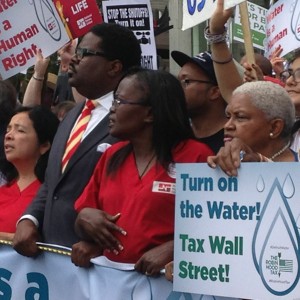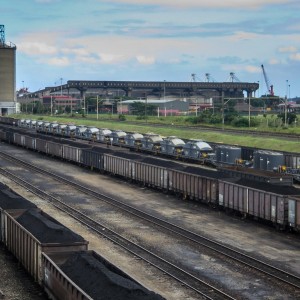The Stream, March 23: Study Predicts Rapid Sea Level Rise
The Global Rundown
A new study by one of the world’s preeminent climate scientists predicts that global sea levels could rise much more rapidly than previously thought. New reports also outline worsening water shortages in China due to coal-fired power production, and the failure of some small water systems in the United States to fix violations of drinking water standards. Operators have reduced the maximum draft of ships travelling through the Panama Canal due to a drought, and environmental groups have said they will sue a power company in Florida over pollution in Biscayne Bay. U.S. officials say President Obama personally asked Iraq’s prime minister to fix the Mosul dam.
“I’m always hesitant to ignore the findings and warnings of James Hansen; he has proven to be so very prescient when it comes to his early prediction about global warming. That having been said, I’m unconvinced that we could see melting rates over the next few decades anywhere near his exponential predictions, and everything else is contingent upon those melting rates being reasonable.” –Michael Mann, a climate scientist at Pennsylvania State University, on a study released Tuesday that predicts global sea levels could rise several meters in the next 50 to 150 years. (Guardian)
By The Numbers
11.89 meters Maximum depth limit for ships passing through the Panama Canal next month, a decrease from normal operating limits due to a drought. Reuters
Science, Studies, And Reports
China’s coal-fired power plants are exacerbating water shortages in the country’s northern region, according to a new report by Greenpeace. The report found that half of China’s coal-fired plants are located in water-scarce areas and consume 3.4 billion cubic meters of water each year. The New York Times
*For more on China’s water-energy nexus, read Circle of Blue’s in-depth Choke Point:China project.
Three-quarters of the small community water systems in the United States cited with serious violations of federal safe drinking water standards in 2011 remained out of compliance three years later, according to a report by the U.S. Environmental Protection Agency’s Office of Inspector General. Nearly half of the systems classified as serious violators were located in Kansas, Puerto Rico, and Texas. USA Today
On The Radar
Two environmental groups plan to sue a Florida power company if action is not taken to stop pollution leaking from a nuclear power plant into Biscayne Bay, the site of a national park. The leak has also raised concerns about the potential contamination of drinking water sources used by Miami. The New York Times
U.S. officials say President Barack Obama sent a letter to Iraq’s prime minister in January urging him to address major structural issues with the Mosul dam. The U.S. government has repeatedly said the dam could collapse and cause a devastating flood, which could also undermine efforts to fight the Islamic State. Reuters
A news correspondent for Circle of Blue based out of Hawaii. She writes The Stream, Circle of Blue’s daily digest of international water news trends. Her interests include food security, ecology and the Great Lakes.
Contact Codi Kozacek





Leave a Reply
Want to join the discussion?Feel free to contribute!